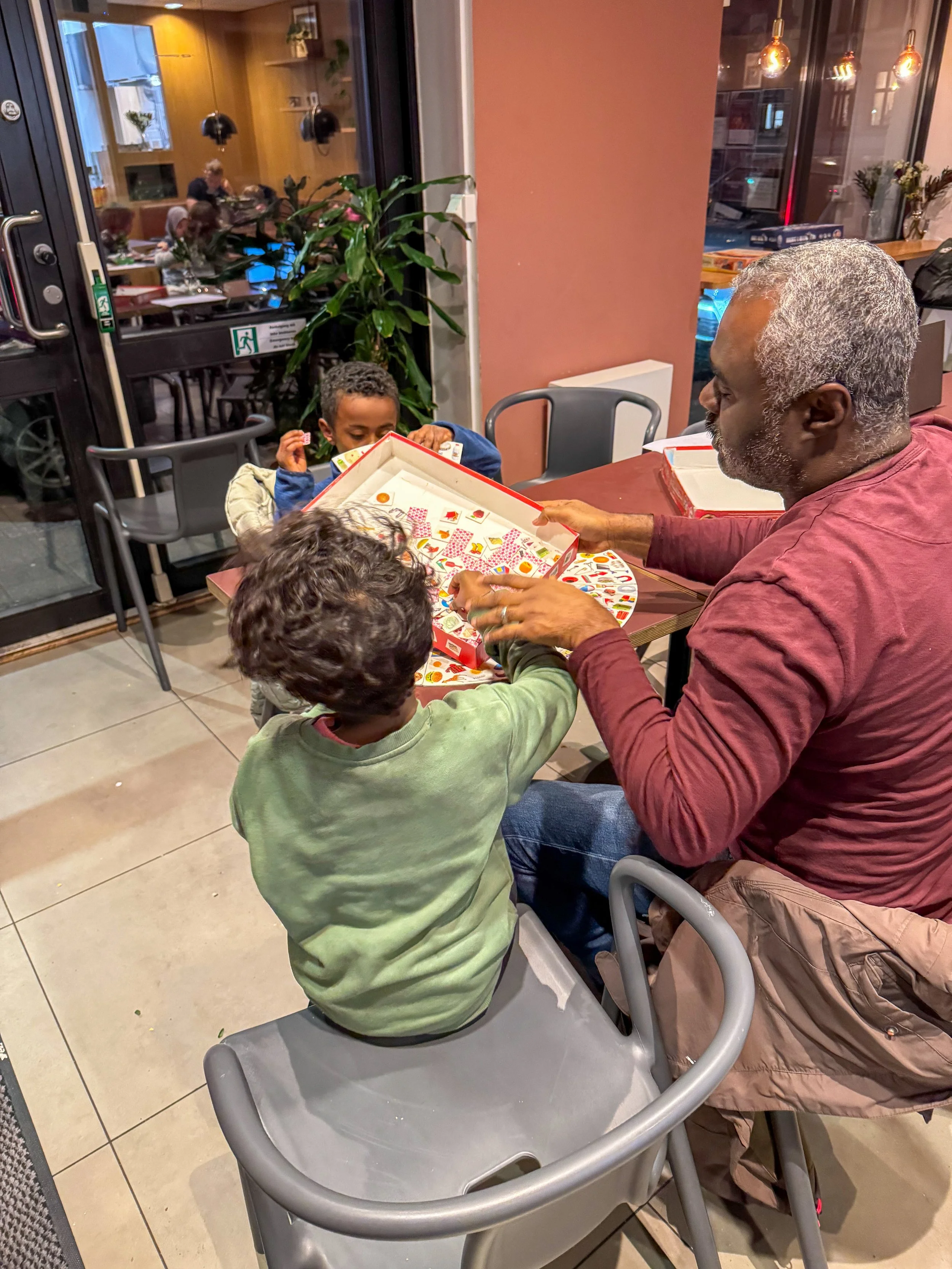Robe’s Journey Toward Healing and Dignity
Kume and Robe’s story
Twenty-one years ago, in a remote Ethiopian village, Kume gave birth to her sixth child, Robe. By all indications, Robe's birth and early development seemed normal. Robe joined a family that would soon welcome a seventh child, only to be shattered by the sudden death of Kume’s husband. As an experienced mother, Kume noticed that Robe's latter development lagged behind her siblings. Robe struggled with speech, social interactions, and basic self-care long after her peers had mastered these skills.
The family accepted that Robe was different. They tried sending her into the local school for all children, but the school for abled children couldn't provide Robe with the unique attention and resources she needs.
After 3 years in the same grade, Robe couldn't keep up and eventually stopped attending school. Instead, Robe spent her days at home, helping with chores and tending to the cattle, isolated from the friendships and experiences that mark a typical childhood.
One fateful afternoon, Kume and the family left for the market, leaving nineteen-year-old Robe to tend the farm. Her assignment was to weed the farm and feed the cattle. A simple task for the 19-year-old Robe. But when the family returned, things had completely changed. Robe naively recounted how a young man from the village had raped her. Kume’s heart broke, knowing the horror her daughter had endured and what awaits. But in their remote village, medical help and legal recourse were out of reach due to the ongoing conflict between the local militants and government forces. The local militants have set a rule that people from the urban part of town are to stay in their corner just like people from the rural part of town.
Seeking justice through village elders, the family received a paltry sum of 8,000 Ethiopian Birr (about 140 US dollars) as compensation—a cruel joke against the lifetime of damage inflicted on Robe. Weeks later, Kume realized Robe was pregnant. With no access to prenatal care due to militant restrictions, they braced for the worst. Kume frantically remembers 2 PM as the time when Robe started complaining of pain in her back area. The pain grew in intensity, and it was clear that Robe was in labor. But what to do wasn't as clear. Once again, the law of the land kept 'rural people' from urban medical services. The helpless mother sat by her daughter’s side realizing how haywire things were getting. How painfully frustrating it must be to be in the presence of such an unfair suffering of a loved one and be completely powerless to do anything.
Kume was torn between wanting to get help for her daughter and potentially putting their lives at risk. The following day, Kume and her son, an 'urban person', decided to take Robe to the clinic. Kume then handed over Robe at a rendezvous near the city and returned home. Robe was snuck into the city and hurried to a clinic by her brother. But they had arrived too late; the baby was no longer alive. Robe then delivered the dead fetus through instrument-assisted delivery. The following day, Robe complained that she was leaking urine through her vagina. The staff at the clinic informed her that this issue would resolve on its own and that she should only return of it didn't improve after 1 month.
Robe returned home, leaking urine constantly. Despite reassurances from the clinic staff, the condition persisted. The family, desperate and fearful, made another perilous journey to the city. This time the clinic staff acknowledged the severity of the illness and Kume was told that treatment was only available in the capital city, Addis Ababa. The months dragged on, with Kume feeling helpless and betrayed by a world that seemed indifferent to their suffering.
Finally, a radio announcement brought a sliver of hope. Kume heard that people with conditions like her daughter’s get free treatment at Assela Fistula Center. But the family had to wait another agonizing five months for the conflict to subside to, once again, make the crossover journey. As soon as her arrival at Assela Fistula Center, Robe was admitted. She was diagnosed with vesicovaginal fistula, foot drop and intellectual disability. A week later, fistula repair was done by our fistula surgeons at Assela Fistula Center. The fistula closure was successful, but Robe still has some stress urinary incontinence, a much less pressing condition that we hope will improve once Robe regains her strength. When told that they ought to return if the stress urinary incontinence persists after 6 months, Kume feels confused. She is worried that the conflict may re-ignite, and they might not get another chance to return. But staying at Assela is too costly for her. All this while the family’s livelihood depended upon the children whom she has left at home.
Robe’s story is a stark reminder of the profound vulnerabilities faced by rural Ethiopian women. It highlights a society where gender inequality and lack of protection for the most vulnerable are pervasive.
For us at Hope of Light, this story is a call to action. It reminds us of the need to pursue, through our collective efforts, a future where every individual has the chance to live with dignity and hope.
Related stories
STORIES FROM OUR PRIORITY AREAS
All · Children & youth · Music & culture · Health & research · Climate action · Social impact investment




